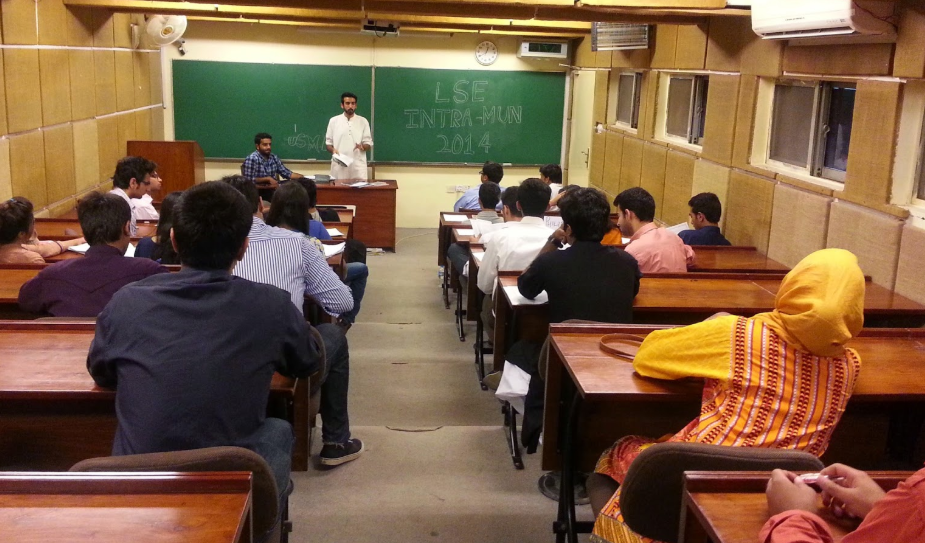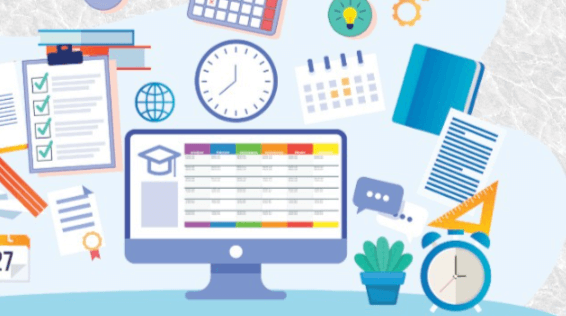If you’re an FSC (Intermediate) student, you must be balancing subjects like physics, chemistry, and biology alongside your preparations for the board exam and thinking about what career you’d like to pursue in the future. I remember my own FSC journey—formula memorization while sneaking in friendships was quite the balancing act. Having a well-executed study timetable can drastically improve your organization skills, reduce stress, and provide chances to excel in your exams. Here’s an overview for constructing a daily and weekly routine for FSC students in 2025 that helps maintain flexibility and practicality and ensures you are efficiently on track.
Identifying Your Goals and Priorities
What your aim is needs to be clearly set out. Planning on medical or engineering school and competing for the top slots in the entrance exam? Or do you simply need to breeze through the exam? A lot of people set goals, like myself, that are heavily motivational in nature. For me, in particular, I wrote down mastering organic chemistry on a sticky note by my desk, and the motivation kicked in. Make a list of your subjects and prioritize the more challenging ones first (looking at you, physics problems!). According to a 2025 study from the University of Lahore, students with specific academic benchmarks were 30 percent more likely to adhere to their schedules. So aim high and plan your schedule around those goals.
Create a Balanced Daily Routine
Your daily life schedule should fit you like a good pair of sneakers. Personally, I prefer biology memorization during the mornings and math problem-solving in the evenings. For FSC students, here’s a proposed daily schedule:
- 6:30 AM – 7:00 AM: Wake up, do some light stretching, and have breakfast to kickstart your brain.
- 7:00 AM–9:00 AM: Tackle a theory-heavy subject like chemistry or English.
- 9:00 AM – 9:15 AM: Break time! Grab a snack or do some stretching.
- 9:15 AM–11:15 AM: Work on problem-solving subjects like physics or math.
- 11:15 AM – 12:00 PM: Note review or flashcard creation for swift recall.
- 12:00 PM – 1:00 PM: Lunch break along with some downtime to watch short YouTube videos.
- 1:00 PM – 3:00 PM: Work on another subject such as biology or computer science.
- 3:00 PM–Evening: School, coaching, other activities, or family time.
Modify this according to your school or coaching hours. As suggested, experts recommend strategically spaced, concentrated blocks of study time to avoid burnout.
See also: Nurturing The Mind: Educational Opportunities For Seniors
Use Technology for Tracking and Monitoring
To stay on top of your schedule, tech can be helpful in tracking study hours. I started using the Download Here Controlio app to monitor time spent on study sessions. It became clear to me that I was over-practicing chemistry reactions and under-practicing math. Google Calendar and other similar apps also offer time tracking, reminder setting, and usage monitoring so you can hit your study targets while avoiding overexertion. They act like coaches who provide gentle nudges to keep you on task and focused on your goals.
Avoid Repetitiveness by Scheduling Weekly
Having a weekly schedule makes it possible to keep your prep balanced across all subjects. Rather than reserving Mondays for physics and Tuesdays for chemistry, I learned that it’s better to mix subjects each day because that aids retention. Here’s an idea:
- Monday–Friday: Teach and learn two subjects per day, like English and physics, for 1-2 hours each.
- Saturday: Improving weak topics and working on past papers. Solving old FSC math papers brought me immense confidence during my Saturday mornings.
- Sunday: Light revision and one mock test. Spend your afternoons on hobbies or relaxation to recharge.
This technique, adapted from top FSC students, helps you balance your syllabus coverage and prevents burnout.
Incorporate Time Off and Be Flexible
Skipping breaks is a big no-no. Breaks are crucial for your mind to reset. To tackle exhausting chapters without burning out, I took revision breaks using the Pomodoro Technique. Out of my 30-minute sessions, I would spend 25 focused on studying and 5 on resting. Life has a way of throwing surprises our way—a family function, an unexpected quiz. For these spontaneous events, try giving yourself a guilt-free buffer of an extra hour daily where you don’t have to stick to your plan. Remember, flexibility helps in sticking to your plan long-term.
Final Note: Study Smart, Shine Bright
Designed properly, a study timetable for an FSC student can enhance productivity. Achieving balance in daily and weekly routines, setting clear objectives, utilizing the Controlio app, and scheduling breaks can help you turn disorder into certainty. From my experience of doing an FSC, I learned the importance of consistency. Feel free to try these strategies, adjust as needed, and start experiencing an upward trajectory in your grades. What’s your go-to study hack? Feel free to drop your suggestions in the comments—I’m all ears!







